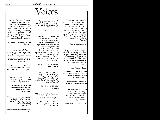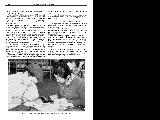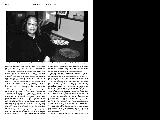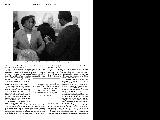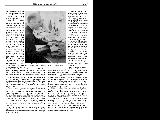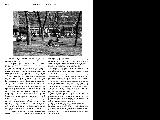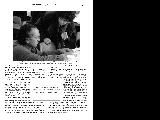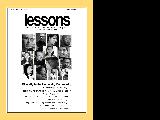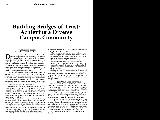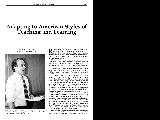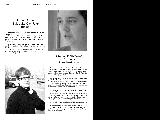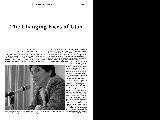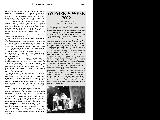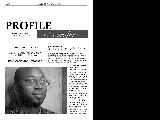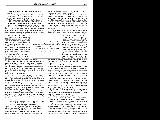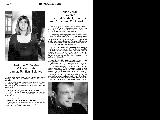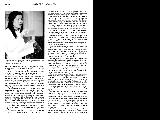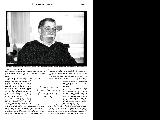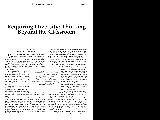| OCR Text |
Show lessons, Spring/Summer 2002 page 23 interests. For the most part, people have been very open to discussing all kinds of issues on campus. And this goes for students in my courses and working in my research lab, as well. Do you feel like a minority, even if you're not a minority? Yes, I do feel like a minority because all I have to do is look around and see that there are no other African-American faculty in our department. In addition, when concerns of diversity come up, I am usually asked for comments on it and/or asked to serve on committees or panels or as a guest lecturer. This is true not just within psychology but across campus, and more and more, even in the Salt Lake City community. Do you ever feel out of place at the U? At times I do feel out of place because there can be so much focus on making statements about diversity. Also, my Catholic religion can be at odds around here sometimes. Plus, I am from the Appalachian Mountains, which seems to have instilled a different mindset in me, which is different from the West. Do you find diversity at the U? In your department? Yes, I find diversity at the U, or it finds me. I feel strongly that the psychology department is one of the leaders in promoting diversity on campus. We have a summer research program that brings underrepresented undergraduate students to campus to work with faculty mentors as a way to help increase the number of underrepresented students pursuing psychology in graduate school and as a career. The program has been in place for about 10 years now and helped lead to the Graduate School putting together a similar program for other departments. Psychology was awarded the University Diversity Award a few years ago for that work, plus our long-standing commitment to diversity issues. We have faculty members connected to ethnic studies and women's studies, plus we have had a diversity committee since the late 1960s as part of the service duties in the department. However, I always feel more work can be done in those areas and we are continuing the fight. After September 11th have attitudes toward you changed? Not really. I think one of the fortunate things out of a great tragedy is that people may have started to see we do need to care about others more than we may have in the past. Do people judge you differently because you have an accent? I don't know if people do judge me differently or not, but I know I feel that people may look at me differently at times because of it. I have what some people call a combination accent of Oklahoma and "heels" of Kentucky. I do know people have been surprised when they find out I am black with my accent. People do like to ask me about my accent, though. Do people treat you differently because of the way you look? As an African-American, I have experienced some nasty comments and strange looks on campus, but rarely. However, I used to be stopped by campus security at times late at night when I was first here and leaving the building. That has not happened in a few years now, but I haven't been here consistently late as much, either. There are times when teaching that I wonder if the students are limiting themselves from making some comments because I'm black, especially in my diversity-focused courses. It is funny now to me but when I teach one of my diversity courses, I get a lot of comments in my evaluations that I focused "too much on black issues" when I go out of my way not to do so. I wonder if I was not black, if those comments would come up. Another "funny" thing that can happen is when I tell some people that I am at the University. They assume that I am either on staff or maybe an undergraduate or graduate student. I guess I should take it as a compliment that people do not think I am "old" enough to be a professor. However, I do not feel it is my age that leads to those perceptions. Now when people ask me what I do, I state that I'm a professor at the U. Have you experienced prejudice from other staff, faculty, or students? Does it happen often? How do you handle it? Yes, I have experienced it at all levels, but it does not happen very often. My response to it will depend on how it occurred, who did it, and my mood at the time. I rarely get very upset toward the person at that time because I have learned over the years here and elsewhere that it can make things worse instead of better. I will try to point out the misperception and flaws in what the person said/did and how I feel about that behavior. If I can turn it into an educational experience, I will try. Unfortunately, many times those attempts fail and it ends up tiring me out because I feel that I'm always "teaching" and being the person who "complains" about things. I do feel like a minority because all I have to do is look around and see that there are no other African American faculty in our department. |

